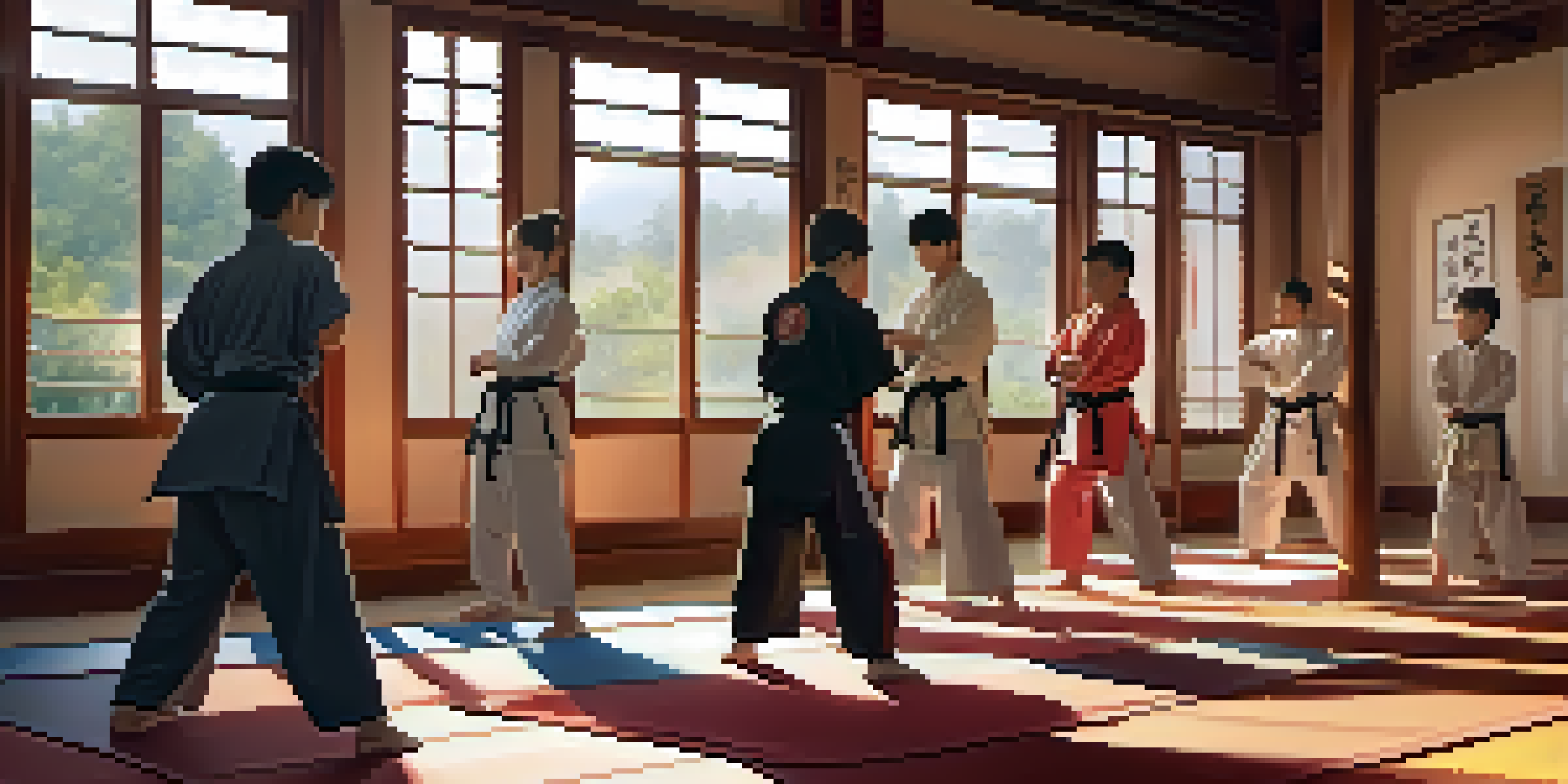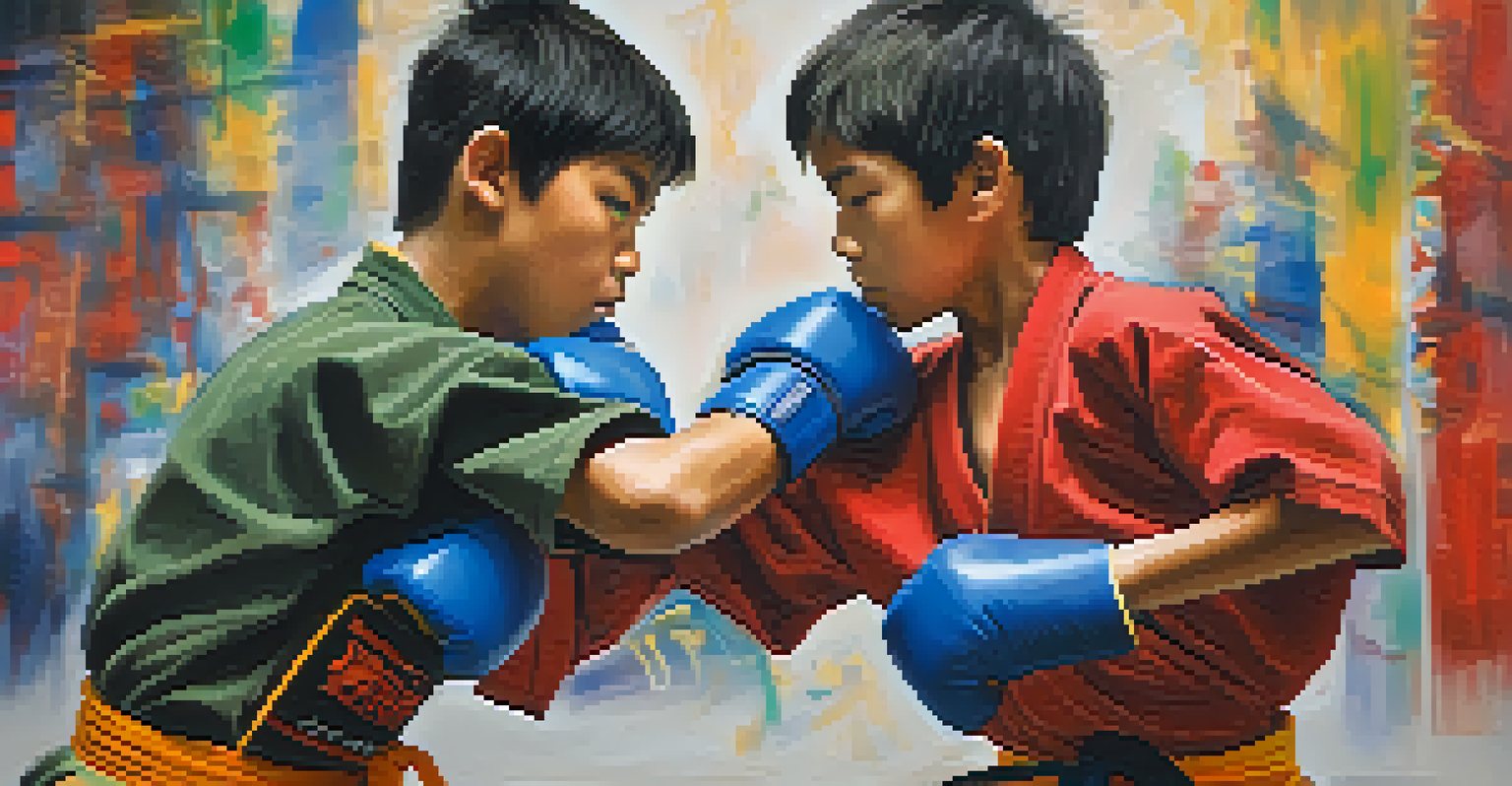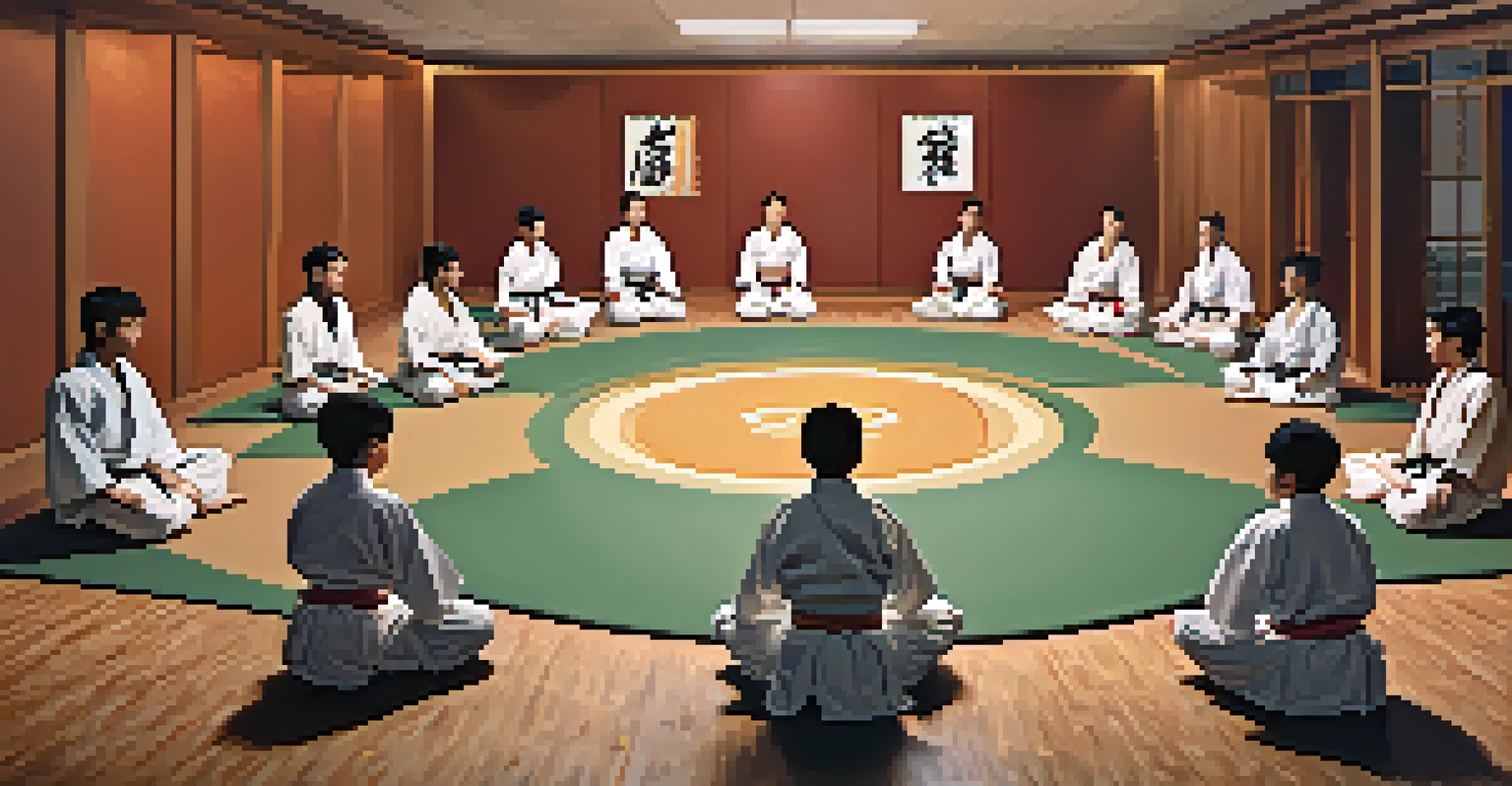Fostering Respect and Teamwork in Youth via Martial Arts

Understanding the Core Principles of Martial Arts
Martial arts is more than just physical training; it's a philosophy that teaches core values. At its heart, respect is a fundamental principle, guiding interactions between students and instructors. This foundational respect is not only towards others but also towards oneself, promoting self-discipline and self-awareness.
The ultimate aim of martial arts is not having to use them.
When young individuals engage in martial arts, they learn to respect their opponents, coaches, and the art itself. This respect translates into a supportive and encouraging environment, where everyone is motivated to improve. Imagine a dojo where everyone cheers each other on—this camaraderie is essential for building teamwork.
By practicing these principles, youth begin to appreciate differences in skills and personalities, fostering an inclusive atmosphere. Respect in martial arts serves as a powerful catalyst for personal growth, teaching students to value diverse perspectives, and ultimately enhancing their social interactions outside the dojo.
The Role of Discipline in Team Building
Discipline is a cornerstone of martial arts training, and it plays a crucial role in fostering teamwork. When young people learn to follow a structured routine and adhere to guidelines, they develop a sense of accountability. This accountability is not just personal; it extends to their teammates, reinforcing the idea that everyone plays a part in the group's success.

For instance, in a sparring session, one student's performance can influence the entire class's learning experience. This interdependence creates a bond among participants, as they realize that their actions impact others. By developing discipline, youth learn to collaborate effectively and support one another in achieving shared goals.
Respect Builds Strong Foundations
Martial arts fosters respect among students, enhancing personal growth and social interactions.
Furthermore, the discipline cultivated in martial arts can spill over into other areas of life, including academics and personal relationships. As they internalize these lessons, young practitioners often find themselves becoming more responsible and reliable, traits that are invaluable in any team setting.
Building Trust Through Shared Experiences
Martial arts classes often involve partner drills, sparring, and group challenges, all of which create shared experiences among participants. These activities not only enhance physical skills but also foster trust among team members. When young people work together to overcome challenges, they deepen their connections and build lasting friendships.
Respect is the foundation of a successful team.
For example, a partner drill requiring each student to rely on the other's timing creates a bond of trust. They learn that they can depend on each other, which is a vital component of effective teamwork. This trust encourages open communication, where teammates feel safe to share feedback and strategies for improvement.
As they navigate successes and setbacks together, youth learn valuable lessons about perseverance and support. These experiences not only enrich their martial arts journey but also prepare them to face challenges in life with a supportive network behind them.
Encouraging Respectful Communication
Effective communication is essential for teamwork, and martial arts provides a unique platform for developing these skills. Instructors often emphasize the importance of respectful dialogue, teaching students to express their thoughts and feelings appropriately. This practice encourages youth to articulate their ideas while respecting others’ viewpoints.
For instance, during class discussions, students are prompted to share their experiences and learnings. By practicing active listening and constructive feedback, they cultivate an environment where everyone feels heard and valued. This respectful communication enhances collaboration, making it easier for teams to work towards common goals.
Discipline Enhances Teamwork
The discipline learned in martial arts cultivates accountability and collaboration within teams.
Moreover, as students learn to communicate respectfully, they gain confidence in expressing themselves. This newfound confidence can translate into other areas of their lives, equipping them with the skills to navigate social situations and conflicts more effectively.
Learning Conflict Resolution in Martial Arts
Conflict is an inevitable part of any group dynamic, and martial arts provides a safe space for youth to learn conflict resolution skills. Through controlled sparring and drills, students encounter various scenarios that require them to think critically and respond calmly. This hands-on experience helps them develop strategies for resolving disputes constructively.
For example, when a disagreement arises during practice, students are encouraged to discuss their perspectives openly. This process not only fosters a sense of ownership over their actions but also teaches them the importance of finding solutions together. Learning to resolve conflicts respectfully is a skill that transcends the dojo, impacting their relationships in everyday life.
By equipping youth with these tools, martial arts cultivates a generation of problem solvers who can approach challenges with empathy and understanding. This capability ultimately strengthens the fabric of their communities, as they become advocates for peaceful conflict resolution.
The Importance of Goal Setting in a Team Environment
Goal setting is a critical aspect of martial arts training that contributes to teamwork. Instructors often guide students to set personal and team objectives, emphasizing the importance of working together to achieve these goals. This collective focus fosters a sense of unity and shared purpose among participants.
For instance, preparing for a belt test requires teamwork, as students support each other in mastering techniques and routines. They celebrate each other's progress and hold one another accountable, reinforcing their commitment to the group. This shared journey towards achieving goals not only strengthens their bond but also enhances their individual growth.
Diversity Enriches Learning
Embracing diversity in martial arts classes promotes inclusivity and prepares youth for a connected world.
Through this process, youth learn the value of collaboration and the satisfaction of collective achievement. The skills they develop in goal setting and teamwork within martial arts can empower them in their academic and personal endeavors, creating a foundation for lifelong success.
Embracing Diversity Within the Martial Arts Community
Martial arts classes often bring together individuals from diverse backgrounds, promoting inclusivity and understanding. This diversity enriches the learning experience, as students learn from one another's unique perspectives and strengths. Embracing diversity fosters a sense of belonging, where everyone feels valued and accepted.
For example, a class might consist of students with varying skill levels and cultural backgrounds, each contributing to the group's dynamic. As they train together, they learn to appreciate the differences that each individual brings to the table. This appreciation fosters mutual respect, laying the groundwork for effective teamwork.

By navigating diversity in the dojo, youth develop critical skills for thriving in an increasingly interconnected world. They become more adaptable and empathetic, preparing them to engage positively with diverse communities beyond martial arts.